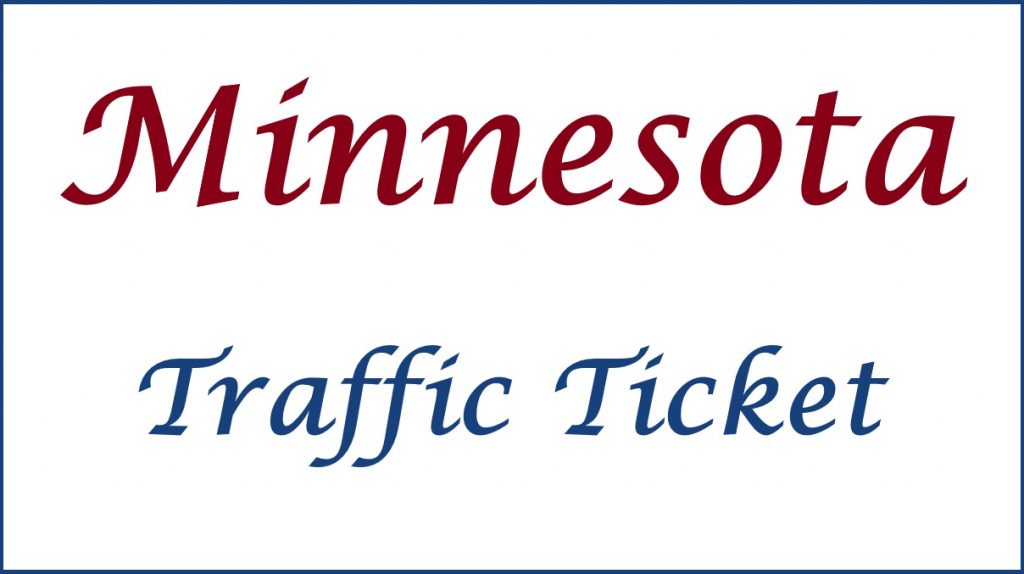MN Speeding laws and penalties: traffic tickets and violations. Minnesota Traffic Violation Ticket pay online. Minnesota Speeding Violations 2024. How to Respond to Minnesota Traffic Violation Ticket.
Minnesota Traffic Ticket
Whether it’s a speeding ticket or any violation ticket, it’s not anything to celebrate. Tickets always have consequences attached which will affect a part of the driving record. Many traffic tickets are punishable by fines, penalties and even license suspension. In Minnesota State, a traffic violation is a severe offence and worth punishing.
However, the State also provides drivers with different rights such as pleading not guilty, requesting mitigation or contest hearing. The driver also has the chance to pay the ticket and forget the court hassle. Paying, however, comes with the poor records which reflect for some years on the driver’s records.
Minnesota Speeding Violations
The State has three types of speeding laws:
- Absolute speeding limit
- Presumed limits
- Basic speeding law.
Each law has different ways of handling and penalties. However, the motorist should ensure to react to the ticket. Failure to act the law will take more severe actions.
Basic Speeding Law
The basic speeding laws prohibit any Minnesota driver from driving beyond the reasonable speed. It’s the driver’s responsibility to check the current conditions. The driver should drive safely to keep everyone on the roads safe. They should be aware of the hazards on the road and drive at low speeds. Example of when to use the basic law is moving at 55mph on a very sunny day is oaky. But it’s wrong when driving at lousy weather or icy road. The driver should be careful not to break the law and cause injuries.
Absolute and Presumed Speed Limits
For absolute and presumed speed limits, the laws are already posted. They don’t work as basic where you have to consider conditions. The absolute laws are punishable if the driver exceeds the set speed limit. However, some driver argues that presumed law is also driving in safe and reasonable speed. The law prohibits anyone from going beyond the set speed limits in certain areas.
If a speed sign says 40mph the driver should drive at 40 or below. Driving past the limit is considered as violating the speeding laws. Unless the rules changed the Minnesota absolute and presumed rules are as follows:
- Drive 10mph for alleys
- 30mph in an urban district.
- 65mph on the freeways and expressways, interstate highways in the urban areas.
- 70mph for interstate highways outside urban areas.
- 55mph for other locations.
These limits are the presumed speed limits outside the municipalities and absolute limits inside the municipality.

What are the Penalties for Exceeding the Speed Limit?
A speeding violation is a misdemeanour which results in fines but not a jail sentence. The speeding fines start at $40 to $150. The penalty will depend on the speed limit the driver exceeded. However, the penalty can double if the offence happened in:
- A school zone.
- The speed was over by 20mph over the set limit.
- If the driver didn’t slow down for an emergency vehicle with flashlights.
The law also prohibits speeding in work zone the fine is $300 for these kinds of violation. The ticket will include a surcharge of $75 and a law library fee of $10. The library fee varies according to the location.
How to Respond to Minnesota Traffic Violation Ticket
Pay the fine
The law allows the offender to pay the ticket without having to challenge the ticket. Suppose one is not requested to appear in court. You can pay the fine through the following channels:
- Pay through online process.
- By mail
- In-person
- Using phone contacts.
Request a Contested Hearing
If the driver is not okay with the ticket, they can plead not guilty. The driver has to request for contest hearing from the court before the due date. Tick the right check box on contest hearing then mail the ticket to the respective court. The court will issue the date of hearing, provide your evidence and explain to the court what happens. The court will make a verdict upon the details you provide. You can also hire a lawyer to help in representing your case.
Request for a Mitigation Hearing
If the driver is guilty and still need to explain to the court, they can request for a mitigation hearing. The driver can explain or ask for a fine reduction if they are financially straining. They can also request a monthly payment plan or community service.